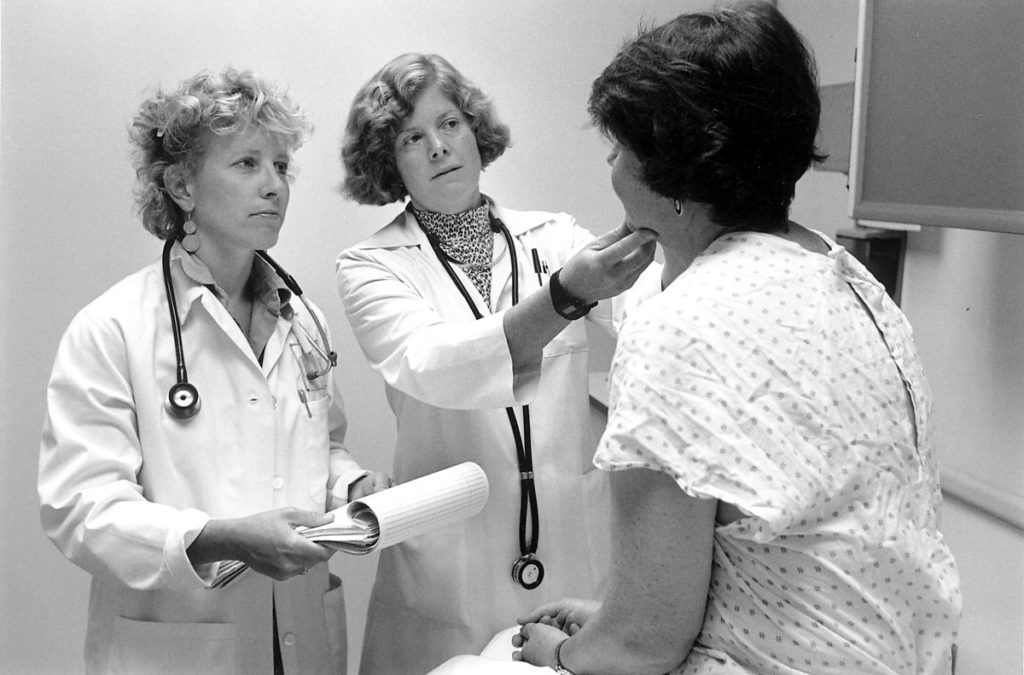Researchers at Stanford University revisit the idea that placebo effects, or effects derived from expectation alone, are inconsequential. Instead, Lauren Howe and colleagues sought to understand how individual beliefs about treatment might influence clinical outcomes in meaningful ways. In their latest study, they find that physician attributes, and the extent to which they are perceived as both warm and competent, can enhance the placebo effect.
“This study suggests that placebo effects should be construed not as a nuisance variable with mysterious impact but instead as a psychological phenomenon that can be understood and harnessed to improve treatment outcomes,” the authors write.

Research on the “placebo effect” demonstrates how individuals’ positive expectations can result in improvement, even when the intervention received has no “active ingredients.” Similarly, negative expectations can lead one to experience increased negative symptoms, such as increased pain, a phenomenon referred to as the “nocebo effect.”
Considering the evidence suggesting that beliefs about treatment can determine both psychological and physiological reactions, the researchers decided to investigate further the factors that influence and shape individuals’ expectations. More specifically, the researchers predicted that the social context in which the expectations are formed influences the effect of one’s expectations on their physiological outcome.
Previous research finds that people tend to immediately assess whether they believe another person’s intentions to be benevolent and whether they believe another to be competent. The authors extend this process to how patients might be influenced by their physician:
“When a physician seems likable and credible, a patient may be more likely to trust their advice and therefore be more influenced by the expectations the physician sets. Warmth and competence may thus potentiate the impact of positive expectations and improve treatment outcomes.”
In this study, Howe, Goyer, and Crum manipulated different levels of provider warmth and competence, measured the impact of positive and negative expectations, and measured the effect of expectations on physiological outcomes.
In the experiment, participants experienced a mild allergic reaction induced by a histamine skin prick test (SPT) and were then provided with cream that contained no active ingredients (placebo). The researchers expected that participants who believed that the cream would decrease their allergic symptoms would report a reduced reaction size and vice versa. Furthermore, they expected that the participants’ belief, of whether or not the cream would increase or decrease their reaction size, would be most strongly influenced by whether they were paired with providers trained to be more warm and competent.
The study’s sample consisted of 164 healthy adults who were under the impression that the purpose of the study was to gather information on novel food preferences. Assessments demonstrated that the manipulations of provider warmth and competence were effective in that participants perceived providers as intended by the researchers.
Results from this study found that participants whose provider was warm and competent were more likely to experience a decrease in symptoms corresponding to their expectations. However, when providers were perceived as less friendly and competent, participants’ expectations did not influence their physiological outcomes.
Overall, these findings suggest that social context, in this case, the warmth and competence of a treatment provider, influences the effect of expectations on medical treatment outcomes. Not only does this add complexity to a phenomenon that has long been oversimplified, but these results offer a further explanation of inconsistent placebo effects across treatment groups.
The authors highlight the implications of these results. Most notably, that urging providers to cultivate greater warmth and competence may improve medical care by strengthening treatment effects.
“Among the many demands of a career in medicine, physicians have been increasingly directed to build rapport with their patients (e.g., by exhibiting empathy). This research suggests a compelling reason for why physicians should pay attention to these psychological and social forces: They can impact physiological health outcomes.”
Therefore, they argue for increased consideration of psychosocial forces and how they might influence the individual patient.
“The same treatments, and even the same expectations about treatments, are not always equally influential. Instead, a complete picture of health care must consider not only the diagnoses and treatments themselves, and not simply how expectations influence these diagnoses and treatments, but also how these expectations are delivered.”
****
Howe, L. C., Goyer, J. P., & Crum, A. J. (2017). Harnessing the Placebo Effect: Exploring the Influence of Physician Characteristics on Placebo Response. Health Psychology, 36(11), 1074. (Link)















This is a critically important topic that may be easier to understand in the reverse- through investigating nocebos. While placebos describe the affect of positive outcome expectations, nocebos describe the impact of negative outcome expectations. I believe that most suicides are caused by nocebos (including Matt Stevenson); negative outcome expectations are powerful.
Report comment
Wow. The strength of “no active ingredients”.
I’m a little chagrined at the level deception displayed here. How many practitioners are out to be perceived as ‘cold’ and ‘incompetent’ anyway?
Report comment